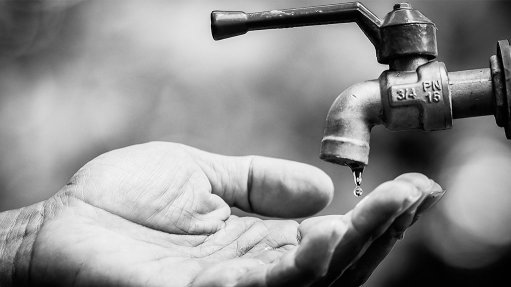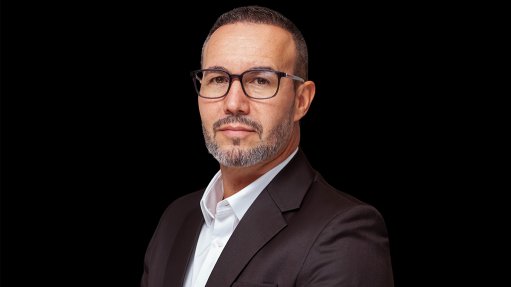It’s time to dare to plan anew
A year ago, in the face of the first Covid-19 death in Egypt, I wrote that the time for governments to act was immediately and that the time for corporates to plan for a pandemic was yesterday. The arrival on the continent of millions of doses of vaccines marks a significant change in the continent’s political and economic outlook.
March marked the beginning of a pan-African vaccination roll-out, bringing hope that the pandemic will be contained by the end of this year. In a historic first, Covax – a programme coordinated by the Vaccine Alliance (also known as Gavi), the Coalition for Epidemic Preparedness Innovations and the World Health Organisation (WHO) – has organised near-uniform deliveries of millions of doses of vaccines of all brands (AstraZeneca, Pfizer, Moderna, Sinopharm and Sputnik V) to most African countries. Against all the odds of vaccine nationalism and supply chain pressures, Covax has enabled most African countries to launch an organised vaccination programme – targeting the vulnerable first and then the wider population.
Nevertheless, inoculations are a race against time: Covid-19’s many mutations put paid to early hopes that Africa’s continental demographic – with an average age of under 20 and a life expectancy of 64 – would see the virus miss its mark. While the African Development Bank’s (AfDB’s) annual outlook noted that Africa’s fatality rate was modest, the WHO had recorded a rise of 40% in Covid-19-linked mortality across Africa in January this year. Health experts also cautioned that South Africa’s highly infectious mutation had spread to some 38 African countries, while reiterating the public health mantra: No-one is safe until everyone is safe. The UK mutation has arrived in Algeria, Nigeria and Kenya. In March, Angola banned flights from the Brazilian city of Sao Paulo as an increase in Covid-19 cases in the South American country prompted fears of importing new mutations.
Several countries are now facing a more virulent third wave. Business contacts in Kenya reported in late March that there has been a spike of new infections and that hospitals were full. Nowhere is that virulence more evident than in Tanzania, where the arch-populist and Covid-19 denier, the country’s late President, John Magufuli, was reported to have died on March 17 after a prolonged absence from public view. In the preceding weeks, the deaths were announced of several of his senior political colleagues – including Zanzibar’s first Vice President, Maalim Seif Sharif, and Magufuli’s chief secretary, John Kijazi – giving rise to suspicions that all had died of Covid-19. Tanzania stopped releasing virus statistics in April 2020 and, until Magufuli’s death, had adopted ‘business as usual’ instead of preventive measures. This provoked friction with neighbouring States, especially Zambia and Kenya, and a sharp rebuke from the WHO’s director-general, Tedros Adhanom Ghebreyesus, who urged the country to take robust action to protect its own people and those of neighbouring countries.
A year of Covid-19 has cut a cruel swathe through the older leaders across the continent – in some areas creating a dangerous political vacuum and in others hastening a potential generational shift. Who can forget the image of pallbearers in full personal protection suits carrying four Zimbabwean Cabinet Ministers to their resting place at Heroes Acre in the capital, Harare? In Cote d’Ivoire, Covid-19 has produced vacancies in five most important political and institutional posts. The death of popular Ivorian Prime Minister Hamed Bakayoko of cancer – a month after a positive Covid-19 diagnosis – has reopened the question of President Alassane Ouattara’s succession. In Ghana, President Nana Akufo-Addo was forced to appoint a caretaker Finance Minister while the incumbent, Ken Ofori-Atta, recovers from Covid-19. Post-Covid-19 complications saw Algeria’s President, Abdelmadjid Tebboune, return to hospital in Germany in December – a month after a record-low turnout voted in a new Constitution that the opposition says entrenches the old guard.
Politicians used Covid-19 to their own ends, with Human Rights Watch accusing President Yoweri Museveni of weaponising Covid-19 to repress political opponent Bobi Wine and his support base. In Ethiopia, Covid-19 has allowed President Abiy Ahmed to defer elections and use international distraction to launch a federal army attack on the rebellious state of Tigray. But a vaccine will see political activity resume. Easing of domestic restrictions has seen Algeria’s youth-led Friday protests, ‘the Hirak’, resume.
This year’s toll on people has been devastating. Poverty has increased continent-wide. In Africa’s most populous nation, Nigeria, the World Bank estimates that Covid-19 will push an additional 15-million to 20-million people into poverty. Tragically, in Madagascar, the United Nations International Children’s Emergency Fund reports that the economic fall-out from Covid-19 has forced households to increase family income through collecting dowries, resulting in an increase in child marriages. Covid-19 fatigue has resulted in the outbreak of protests: in Gabon a Revolution des Casseroles erupted as government reintroduced Covid-19 restrictions.
Yet the continent has demonstrated an underlying resilience that will see several economies bounce back in 2021 and 2022. One business source compares the relative resilience of the African economy to an internal combustion engine, with a flexible informal economy and growing domestic market. Africa-wide tourism destinations have developed domestic and regional markets to counter the loss of global visitors. The Africa Continental Free Trade Area has come into being. Add to this China’s recovery increasing demand for Africa’s commodities; this has led Guinea to overtake Australia as China’s largest bauxite and aluminium supplier. The AfDB’s ‘African Economic Outlook 2021’ bears out this resilience in figures and notes a 2.1% decline in gross domestic product across the continent in 2020, making Africa’s recession the least severe. The AfDB anticipates Africa’s growth to be 3.4% this year. Now is the time for companies to look forward with optimism and plan for the post-Covid world.
Article Enquiry
Email Article
Save Article
Feedback
To advertise email advertising@creamermedia.co.za or click here
Announcements
What's On
Subscribe to improve your user experience...
Option 1 (equivalent of R125 a month):
Receive a weekly copy of Creamer Media's Engineering News & Mining Weekly magazine
(print copy for those in South Africa and e-magazine for those outside of South Africa)
Receive daily email newsletters
Access to full search results
Access archive of magazine back copies
Access to Projects in Progress
Access to ONE Research Report of your choice in PDF format
Option 2 (equivalent of R375 a month):
All benefits from Option 1
PLUS
Access to Creamer Media's Research Channel Africa for ALL Research Reports, in PDF format, on various industrial and mining sectors
including Electricity; Water; Energy Transition; Hydrogen; Roads, Rail and Ports; Coal; Gold; Platinum; Battery Metals; etc.
Already a subscriber?
Forgotten your password?
Receive weekly copy of Creamer Media's Engineering News & Mining Weekly magazine (print copy for those in South Africa and e-magazine for those outside of South Africa)
➕
Recieve daily email newsletters
➕
Access to full search results
➕
Access archive of magazine back copies
➕
Access to Projects in Progress
➕
Access to ONE Research Report of your choice in PDF format
RESEARCH CHANNEL AFRICA
R4500 (equivalent of R375 a month)
SUBSCRIBEAll benefits from Option 1
➕
Access to Creamer Media's Research Channel Africa for ALL Research Reports on various industrial and mining sectors, in PDF format, including on:
Electricity
➕
Water
➕
Energy Transition
➕
Hydrogen
➕
Roads, Rail and Ports
➕
Coal
➕
Gold
➕
Platinum
➕
Battery Metals
➕
etc.
Receive all benefits from Option 1 or Option 2 delivered to numerous people at your company
➕
Multiple User names and Passwords for simultaneous log-ins
➕
Intranet integration access to all in your organisation


















